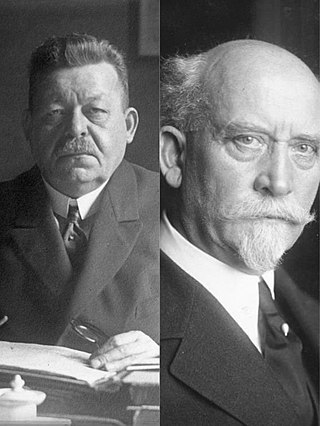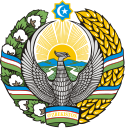Regular elections in Croatia are mandated by the Constitution and legislation enacted by Parliament. The presidency, Parliament, county prefects and assemblies, city and town mayors, and city and municipal councils are all elective offices. Since 1990, seven presidential elections have been held. During the same period, ten parliamentary elections were also held. In addition, there were nine nationwide local elections. Croatia has also held three elections to elect members of the European Parliament following its accession to the EU on 1 July 2013.

Bulgaria elects on the national level a head of state—the president—and a legislature. The president is elected for a five-year term directly by the people. The National Assembly has 240 members elected for a four-year term by proportional representation in multi-seat constituencies with a 4% threshold. Bulgaria has a multi-party system in which often no one party has a chance of gaining power alone and parties must work with each to form governments.

Elections in Niger take place within the framework of a semi-presidential system. The President and National Assembly are elected by the public, with elections organised by the Independent National Electoral Commission (CENI).

Elections in Guyana take place within the framework of a multi-party representative democracy and a presidential system. The National Assembly is directly elected, with the nominee of the party or alliance that receives the most votes becoming President.

Federal elections were held in Germany on 19 January 1919, although members of the standing army in the east did not vote until 2 February. The elections were the first of the new Weimar Republic, which had been established after World War I and the Revolution of 1918–19, and the first with women's suffrage. The previous constituencies, which heavily overrepresented rural areas, were scrapped, and the elections held using a form of proportional representation. The voting age was also lowered from 25 to 20. Austrian citizens living in Germany were allowed to vote, with German citizens living in Austria being allowed to vote in the February 1919 Constitutional Assembly elections.

Parliamentary elections were held in Macedonia on 18 October 1998, with a second round on 1 November. VMRO-DPMNE emerged as the largest party, winning 49 of the 120 seats, and later formed a coalition government with Democratic Alternative and the Democratic Party of Albanians.

The unicameral Assemblée nationale or National Assembly is Guinea's legislative body. Since the country's birth in 1958, it has experienced political turmoil, and elections have been called at irregular intervals, and only since 1995 have they been more than approval of a one-party state's slate of candidates. The number of seats has also fluctuated.

Parliamentary elections were held in Hungary on 9 April 2006, with a second round of voting in 110 of the 176 single-member constituencies on 23 April. The Hungarian Socialist Party (MSZP) emerged as the largest party in the National Assembly with 186 of the 386 seats, and continued the coalition government with the Alliance of Free Democrats (SZDSZ). It marked the first time a government had been re-elected since the end of Communist rule. To date, this is the most recent national election in Hungary not won by Fidesz-KDNP, and the last in which the victorious party did not win a two-thirds supermajority in parliament.

Parliamentary elections were held in Hungary on 10 May 1998, with a second round of voting in 175 of the 176 single member constituencies on 24 May.

Parliamentary elections were held in Hungary on 25 March 1990, with a second round of voting taking place in all but five single member constituencies on 8 April. They were the first completely free and competitive elections to be held in the country since 1945, and only the second completely free elections with universal suffrage in the country's history. The conservative, nationalist Hungarian Democratic Forum (MDF) beat the liberal and more internationalist Alliance of Free Democrats, which had spearheaded opposition to Communist rule in 1989, to become the largest party in parliament. The Hungarian Socialist Party, the former Communist party, suffered a crushing defeat, winning only 33 seats for fourth place.
Parliamentary elections were held in Turkmenistan on 14 December 2008, with a second round held in one constituency on 28 December 2008 and a revote in one constituency on 8 February 2009. The number of assembly members was increased from 65 to 125 in constitutional reforms enacted on 26 September 2008. It was the first election since Turkmenistan's independence in which, theoretically, parties other than the Democratic Party of Turkmenistan are allowed to take part since the constitution no longer defined Turkmenistan as a one-party state. However, no legal opposition parties had been set up and the fact that the election took place in single-seat constituencies greatly diminished the opposition's chance of gaining parliamentary representation.
Parliamentary elections were held in Albania on 24 June 2001. The result was a victory for the ruling Socialist Party of Albania, which won 73 of the 140 seats, resulting in Ilir Meta remaining Prime Minister. Voter turnout was 54%.

Parliamentary elections were held in Uzbekistan on 27 December 2009 and 10 January 2010 to elect the 150 members of the Legislative Chamber of Uzbekistan, the lower house of the Oliy Majlis. Of these, 135 were directly elected from single member constituencies using the two-round system, while 15 seats were reserved for the country's Ecological Movement. Provincial and district councils were elected at the same time. Polls opened at 06:00 and closed at 20:00.
Constitutional Assembly elections were held in Bulgaria on 10 June 1990, with a second round for eighteen seats on 17 June. They were the first elections held since the fall of Communism the previous winter, and the first free national elections since 1931. The elections were held to elect the 7th Grand National Assembly, tasked with adopting a new (democratic) constitution. The new electoral system was changed from 400 single-member constituencies used during the Communist era to a split system whereby half were elected in single member constituencies and half by proportional representation. The result was a victory for the Bulgarian Socialist Party, the freshly renamed Communist Party, which won 211 of the 400 seats.
Parliamentary elections were held in Turkmenistan on 11 December 1994, the first since independence. All 50 seats were won by the former Communist Party, which had rebranded as the Democratic Party of Turkmenistan and remained the sole legal party.

Parliamentary elections were held in Uzbekistan on 5 December 1999, with a second round in 66 of the 250 constituencies on 19 December. The People's Democratic Party of Uzbekistan emerged as the largest party, with 49 of the 250 seats. Voter turnout was 95.0%.

Parliamentary elections were held in Andorra on 9 December 1981, with a second round of voting on 16 December. Local elections were held on the same day. Following the elections, Òscar Ribas Reig became the country's first Prime Minister.
A referendum on the electoral system was held in Slovenia on 8 December 1996. Voters were given three options to approve or not; a compensatory system, a two-round majority system and a proportional representation system at a national level.

Parliamentary elections were held in Uzbekistan on 21 December 2014, with a second round on 4 January 2015, alongside provincial and district council elections. The Uzbekistan Liberal Democratic Party remained the largest party, winning 52 of the 135 elected seats in the Legislative Chamber.

Parliamentary elections were held in Uzbekistan on 22 December 2019, with a second round in 25 of the 150 constituencies on 5 January 2020. They were the first elections to be held after the death of Islam Karimov in 2016. The ruling Uzbekistan Liberal Democratic Party remained the largest party in the Legislative Chamber, winning 53 of the 150 seats. All five parties contesting the elections were regarded as loyal to President Shavkat Mirziyoyev.












